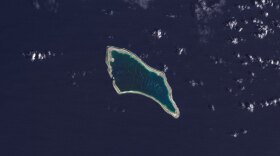Last week, a teenager’s death in custody became the latest incident in a long series of case of alleged police brutality in Fiji. Last October, Prime Minister Frank Bainimarama admitted that torture was a problem but said that the issue is being addressed. Details from Neal Conan in today’s Pacific News Minute.
Addressing a regional workshop after Fiji signed the United Nations Convention against Torture, Prime Minister Bainimarama said that Fiji has never had a state sanctioned policy of torture. That it’s prohibited by the country’s constitution, but that isolated cases have happened. He spoke of violence ingrained in the culture, using the word buturaki – the beating – directed against women in the home, to discipline children, or used by police to extract confessions. It is not acceptable in the modern age, he said, and added, that corporal punishment has been banned in the nation’s schools, in an effort to change the culture.
Human Rights lawyer Aman Ravindra-Singh welcomed the prime minister’s admission, but said he was wrong to use the word isolated. Ravindra-Singh cited a series of allegations against police and soldiers including the case of Rajneel Singh. Attacked, he says, by police in November 2015, then again in September of last year. Fiji police say they cannot comment on an ongoing investigation, but Ravindra-Singh said, “That’s the norm. “ He told Radio New Zealand, “All they will say is that investigations are continuing but whether something comes out of it; that is another story.”
In December, a report from Amnesty International said Fiji’s security forces still assaulted people with relative impunity. The report was denounced by attorney General Aiyaz Said-Khaiyum, who said that it was “legally biased, factually flawed and lacked intellectual integrity.”




